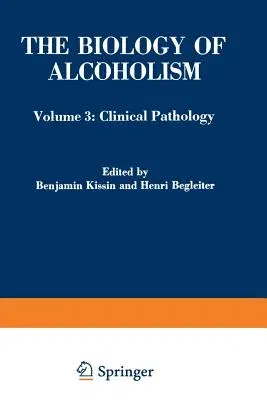Benjamin Kissin
(Author)The Biology of Alcoholism: Volume 3: Clinical Pathology (Softcover Reprint of the Original 1st 1974)Paperback - Softcover Reprint of the Original 1st 1974, 22 June 2012

Qty
1
Turbo
Ships in 2 - 3 days
In Stock
Free Delivery
Cash on Delivery
15 Days
Free Returns
Secure Checkout
Print Length
674 pages
Language
English
Publisher
Springer
Date Published
22 Jun 2012
ISBN-10
1468429396
ISBN-13
9781468429398
Description
Product Details
Authors:
Book Edition:
Softcover Reprint of the Original 1st 1974
Book Format:
Paperback
Country of Origin:
NL
Date Published:
22 June 2012
Dimensions:
23.39 x
15.6 x
3.66 cm
ISBN-10:
1468429396
ISBN-13:
9781468429398
Language:
English
Location:
New York, NY
Pages:
674
Publisher:
Weight:
988.83 gm

